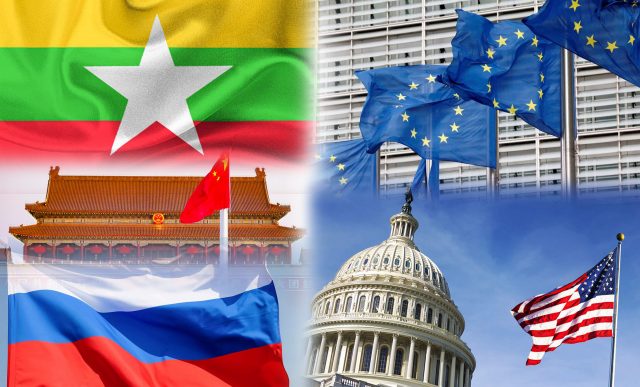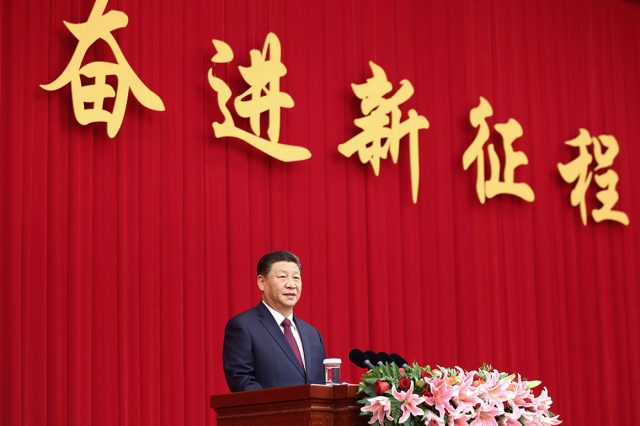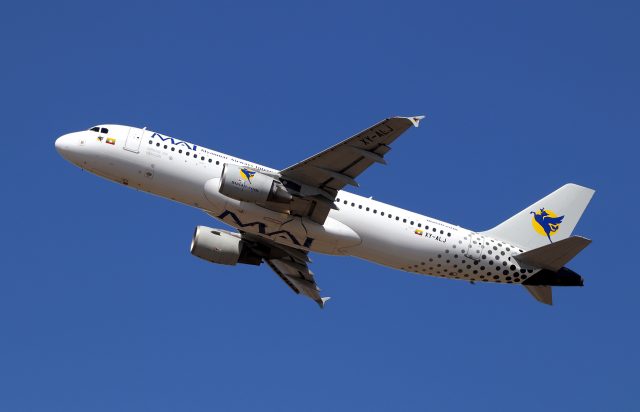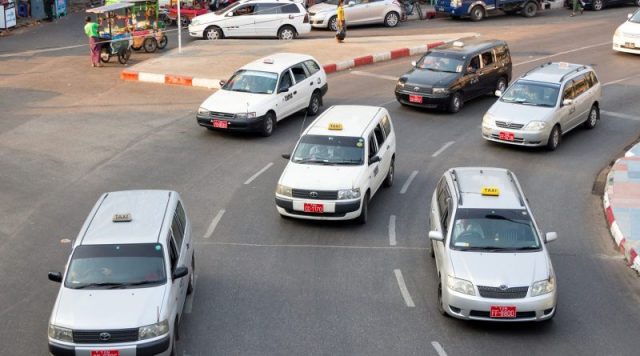What inspired you to take on this role and what do you hope to achieve in this position?
Having spent all my professional life serving the Life Insurance industry, I am passionate about the purpose it serves for families. I am equally passionate about dedicating my energy to markets where it is still at a developing stage. In a market like Myanmar, with ~ 0.10% penetration rate for Life Insurance, we have a lot to do and contribute to bringing this important confidence-enhancing product to the families of Myanmar.
Global players such as Manulife can play a very important role in bringing product expertise, technology and skills for employees and Advisors into Myanmar. As the CEO of Myanmar, I would like to play a role in firmly establishing Manulife as a leading Life and Health Insurance solutions provider. This will involve developing a deep understanding of local customer needs and preferences and tailoring our products and services to meet those needs. I believe that by leveraging our global expertise and working closely with our distribution partners, we can build a strong brand that resonates with customers across the country.
Additionally, I want to ensure that we operate sustainably and responsibly benefiting our customers and the broader community. This means prioritizing the needs of our customers and investing in initiatives that promote life insurance literacy and inclusion.
Explain briefly about your background and your career before you join Manulife Myanmar.
I was recently CEO and General Director of BIDV-MetLife Life Insurance and managed MetLife’s joint venture with one of the largest government-owned banks (BIDV) in Vietnam. Together with my team, we built a fast-paced life insurance company implemented a hybrid model that combines digital with bancassurance and agency for providing better services to our customers than before. Through this, I was able to learn that when digitalization is combined with face-to-face human interaction, it improves the speed, efficiency and experience of the customer and employees.
Before working for 7 years in Vietnam, I was in the Hong Kong Regional Office as COO and had the unique opportunity to supervise Operations for markets like India, Bangladesh, Nepal, Malaysia, Vietnam, and Australia. The experience of working in Life Insurance in the markets of Asia has reaffirmed my belief that this product serves tremendous value for families in health, protection and long-term savings.
What are the opportunities and challenges you see in the Myanmar and how do you intend to leverage Manulife’s strengths to address them?
Myanmar has significant upsides with young population, growing middle class, digitally savvy customer base, low insurance penetration and a growing awareness about Life Insurance products. The Insurance regulators (FRD) are collaborating very hard with the members of the Insurance Industry to create a long- term and sustainable growth model for the customers. There are some challenges which the Life Insurance Industry needs to tackle jointly. The biggest challenge in the market is awareness and education about Life Insurance which remains low.
The development of Agency and licensing of Agents plays a key role in developing Life Insurance awareness and penetration. As an example, in another developing market like Vietnam, there are ~1 million Agents for a population size of ~100Mn. So, for every 100 potential customers, there is an Agent who has been trained and licensed to advise and prospect. In comparison, Myanmar has only about 7000 agents today for a population of ~ 55Mn. As an industry, we need to build our
Agent numbers so that the customers have access to an Agent for trusted and professional advice.
Secondly, while building our Agent numbers, we also need to ensure that the Agents are provided a step- by-step learning and licensing approach so that the advice to the customer is of the highest quality. Insurance products can be complex. Simple products like Term and Endowment require less learning time and experience for the Agent. Whereas complex products like Universal Life and Investment Linked require significant experience and more detailed learning and licensing requirement for the Agents.
Manulife has a deep understanding of the insurance industry and the needs of customers in different markets around the world. This knowledge and expertise will be critical in helping us develop innovative products and services tailored to the unique needs of customers in Myanmar. We look forward to partnering with other insurance companies and Myanmar Insurance Association in ensuring that the industry develops in a responsible manner for Myanmar customers.
How do you plan to build and motivate a strong team in Myanmar to achieve the company’s goals?
Building and motivating a strong team is critical to the success of any organisation and at Manulife Myanmar, we are committed to creating a culture of fun, learning and development that attracts and retains the best talent in the industry. We believe that providing opportunities for growth and development is essential to keeping our team members motivated and engaged.
Our focus in Myanmar is to hire a diverse and inclusive team which is keen to learn, challenge, collaborate and is passionate about serving customers. We provide extensive training, both in-house as well as through our partnerships with associations like Life Office Management Association (LOMA). Every year, our employees also get a chance to learn and upgrade their knowledge through various interactions from Manulife colleagues in other developing and developed markets. That enables us to have world-class systems, processes and knowledge in Myanmar for our customers.
What are some of the key lessons you have learned in your career so far and how do you plan to apply them?
Given the nature of our business, it is all about providing consistent service and delivering on long-term promises. Building a strong sales force is important to expand our reach. But equally important is to develop a strong service platform for our customers. Since we do long-term insurance sales which covers customers for 10 years or more, it is important that the service provided is reliable and trusted. It ensures that the customer stays with the company for the entire duration and the family can trust the service. At Manulife, we put a lot of focus and I am proud that our persistence (a measure of customer loyalty) is one of the best in the industry.
How do you plan to communicate Manulife’s commitment to families and their financial security to the broader community?
Manulife’s commitment to families and their financial security involves engaging with a broader community, partnering with like-minded organizations, providing educational resources, leveraging our team’s expertise and delivering on our promises.
For example, we leverage the expertise and experience of our team at Manulife Myanmar which is comprised of experienced professionals who are dedicated to helping families achieve their financial goals. We work closely with our customers to understand their needs, develop customized financial plans and provide ongoing support and guidance while remaining committed to delivering on our promises and providing excellent customer service. We know that trust is earned over time, and we are committed to building long-lasting relationships with our customers based on trust, transparency, and reliability.
What advice would you give to families in Myanmar who are looking to protect and secure their financial future?
Thank you for asking this important question. Families in Myanmar should consider insurance products that meet their unique needs and circumstances. In general, Myanmar is a young country. So my first advice would be to select products which are long-term in nature. Additionally, health insurance can provide families with access to quality healthcare services without worrying about the financial burden that comes with medical bills. By paying regular premium through the policy term, families can ensure that their loved ones are financially protected in the event of unforeseen circumstances.
At Manulife Myanmar, we are committed to helping families achieve financial security and stability. We offer a range of insurance products to help families in Myanmar protect their financial future and provide peace of mind.
How does Manulife work with local partners and stakeholders to better understand the needs of families in Myanmar and address their concerns?
We understand the importance of working closely with our customers, community leaders, officials, and other key stakeholders to better understand the needs of families in Myanmar and address their concerns. Our partnerships with local organisations and stakeholders enable us to gain valuable insights into the challenges and opportunities that families face in managing their financial futures.
We believe that by influencing our strengths and working closely with our partners, we can overcome the challenges and capitalize on the opportunities in the Myanmar market. We are committed to building a sustainable and responsible business that creates value for all stakeholders and we look forward to playing a key role in the development of the insurance industry in Myanmar.
In addition to it, we have partnered with local hospitals and healthcare providers to offer innovative health insurance solutions that provide families with access to quality healthcare services. And for education, we do the same as well. It is an essential part of our commitment to delivering personalized service and support for families in need and challenges that families face and developing innovative solutions that meet specific needs and circumstances.
















